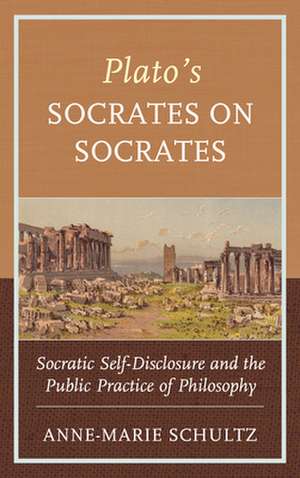PLATOS SOCRATES ON SOCRATESSOCB
Autor Anne-Marie Schultzen Limba Engleză Hardback – 18 mar 2020
Preț: 613.53 lei
Preț vechi: 796.78 lei
-23% Nou
Puncte Express: 920
Preț estimativ în valută:
117.41€ • 121.29$ • 97.72£
117.41€ • 121.29$ • 97.72£
Carte tipărită la comandă
Livrare economică 25 martie-08 aprilie
Preluare comenzi: 021 569.72.76
Specificații
ISBN-13: 9781498599641
ISBN-10: 1498599648
Pagini: 162
Dimensiuni: 152 x 229 x 18 mm
Greutate: 0.4 kg
Editura: Rowman & Littlefield
ISBN-10: 1498599648
Pagini: 162
Dimensiuni: 152 x 229 x 18 mm
Greutate: 0.4 kg
Editura: Rowman & Littlefield
Notă biografică
By Anne-Marie Schultz
Descriere
Anne-Marie Schultz explores Plato's presentation of Socrates as a philosopher who tells narratives about himself in the Theaetetus, Symposium, Apology, and Phaedo. She argues that scholars should regard Socrates as a public philosopher, while examining Socratic self-disclosive practices in the works of bell hooks, Kathy Khang, and Ta-Neishi Coates.
